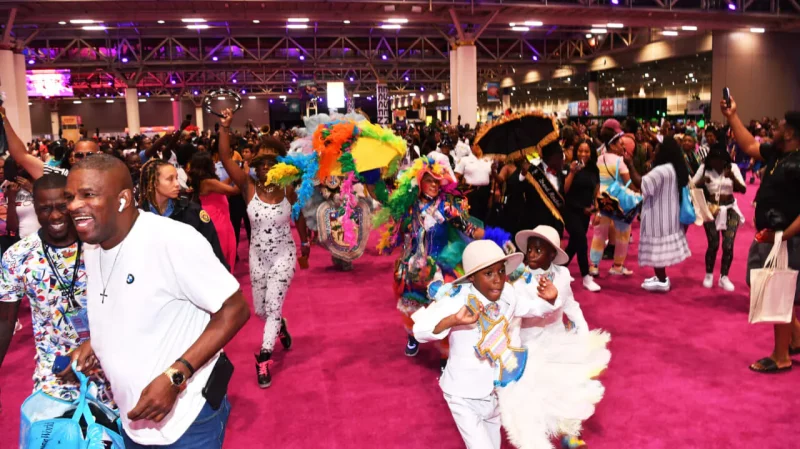Diary of my first Essence Fest: How 4 days in New Orleans changed me forever
Share
Explore Our Galleries
Breaking News!
Today's news and culture by Black and other reporters in the Black and mainstream media.
Ways to Support ABHM?
By Shakirah Gittens, theGrio
Fresh off of a bout with COVID, theGrio’s Shakirah Gittens braved her first-ever Essence Fest—and found healing she could’ve never expected.

Floating down the Mississippi River in one of New Orleans’ legendary steamboats, I felt overwhelmed with gratitude. I had come to my first Essence Fest for work, but the “festival of culture” had turned out to be much more than that. The trip turned out to be much more than I could ever have expected, period.
It almost didn’t happen at all. Just prior to my trip, I had a terrible fight with COVID—which, in turn, impacted a previously undiagnosed muscle condition my body had been fighting, as well. I was unsure I would even be able to go, which ultimately probably made the trip even more impactful.
[…]
I arrived in New Orleans relieved to be COVID-negative but still with a lingering cough. Rather than risk getting anyone else sick, I decided I would somehow keep my distance. “Hey, I’m just getting over COVID! Don’t hug me,” I would say to everyone I ran into—but I was bombarded with love and hugs, anyway. That would turn out to be the essence of my Essence Fest experience.
Native New Orleanians and frequent visitors already know, but for me, it was the people I met and the vibe of the city. I have always respected New Orleans, rich in history—Black history—and as a jazz connoisseur, I was beyond excited to be visiting a dream destination of mine. It’s like you can feel it in the air, even as you exit the airport. As soon as I entered my Lyft, my driver and I were chatting about how to best occupy my time, as I’d strategically arrived two days prior to Essence Fest.
Read more about Shakirah’s time in New Orleans and at Essence Fest specifically.
Essence Fest is was readily welcomed by the city that was ravaged by Hurricane Katrina.
Check out more stories like this.









Comments Are Welcome
Note: We moderate submissions in order to create a space for meaningful dialogue, a space where museum visitors – adults and youth –– can exchange informed, thoughtful, and relevant comments that add value to our exhibits.
Racial slurs, personal attacks, obscenity, profanity, and SHOUTING do not meet the above standard. Such comments are posted in the exhibit Hateful Speech. Commercial promotions, impersonations, and incoherent comments likewise fail to meet our goals, so will not be posted. Submissions longer than 120 words will be shortened.
See our full Comments Policy here.